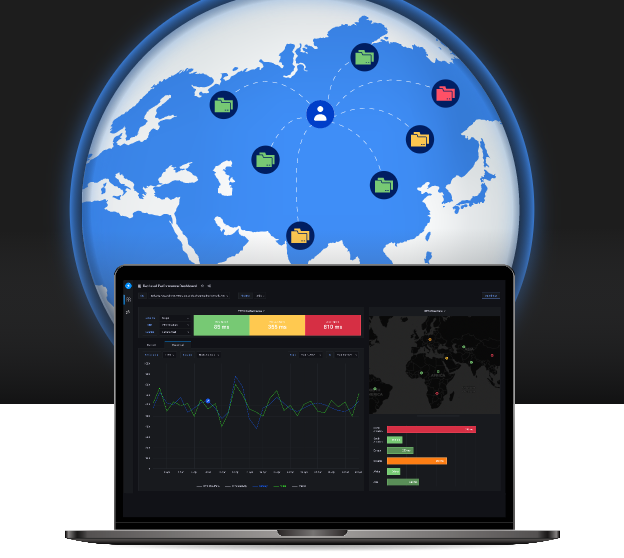Smart Contract Audit Company
Leverage our smart contract audit services to thoroughly inspect your smart contract and improve its efficacy. Our smart contract audit services include both automatic and manual testing to address the shortcomings of your source code and prevent it from all possible vulnerabilities.

Trusted By Leading Enterprises


Fullstack Developers
Digital Solutions
Blockchain Projects
Total Years of Experience
Why Audit Smart Contracts?
Smart contracts are irreversible and cannot be edited once deployed. Thus, it is important to deploy error-free smart contracts that can seamlessly operate as desired without fail. A proper smart contract audit before implementing it on the mainnet can ensure the following benefits:

Improved Optimization
Smart contract audits can optimize your code by revealing any indirect command execution like unknown code, reentrancy, runtime errors, interface issues, gas-intensive operations and other flaws.

Security
Proper smart contract audits aid in discovering possible security vulnerabilities and risks by eradicating bugs and insecure codes so that the system remains tamper-proof and protected against any malicious attacks.

Boost Efficiency
Auditing smart contracts help improve the efficiency of your code by ensuring that the codes are well-written and organized and assist in verifying that all variables and functions are precise yet descriptive.

Better Performance
Auditing a smart contract before deploying it can assist in triggering the automation process of your smart contract without any glitches or hindrances and improve the contract’s overall functionality.
Our Smart Contract Audit Process



Specification Assembling and Client Consultation
Understanding your project’s details is integral to our smart contract audit services. We gather the specifications of your code, and comprehend its design, build process and architecture to grasp its intended functionalities.

Automated Review and Testing
Utilizing high-end tools, including MythX, Certik’s SkyHarbor and Quill Hash, we conduct several analysis techniques to examine your source code’s potential risks that involve syntax errors, security loopholes, bugs and other weaknesses.

Manual Analysis and Testing
After automated testing, we inspect if the smart contract shows any unanticipated behavior and other security vulnerabilities like overflows, denial of service, reentrance, front running, time manipulation, malicious libraries and logical flaws.

Functional Testing
In this step, our Quality Assurance team and developers work together to manually test every function or method on multiple parameters and conditions for any failure and verify if each function of the smart contract operates as intended. We also test the features of your smart contract to ensure that the operational and business logic are incorporated properly.

Initial Audit Report Submission
After the vulnerability inspection of your smart contract, our developers provide an initial comprehensive audit report, stating all the findings and effective recommendations to fix the issues.

Issue Fixing by Developers
Once the initial audit report is submitted, the detected issues and bugs are fixed by the developers either from the client’s side or from our end, if required.

Inspecting the Rectified Code
After the necessary changes in the code are made, we review the rectified code and run a series of tests to verify if the code quality has improved and all the issues have been resolved.

Final Report Documentation and Submission
In the final step, we document every detail and vital information of our smart contract audit to deliver a fully customized, transparent and comprehensive report to the client.
Audit Report Details
Our smart contract audit report includes the details of all identified vulnerabilities in a smart contract and the remedial measures taken to address them. We document every smart contract audit report against the following markers:

The goal of the project

Our effort

Our approach

Timeline

Audit tool(s)

Audit techniques

Summary of the findings

Detected vulnerabilities and their severity

Recommended remediations

Vulnerability fixes

The goal of the project

Our approach

Audit tool(s)

Summary of the findings

Recommended remediations

Our effort

Timeline

Audit techniques

Detected vulnerabilities and their severity

Vulnerability fixes
We Audit Smart Contracts Built on These Blockchains
As a leading smart contract audit company with deep expertise in several blockchain services, LeewayHertz audits smart contracts built on a range of blockchain protocols, including:

Ethereum

Binance smart chain

Tezos

Avalanche

Algorand

NEAR

Polygon (Matic)

Solana

Algorand

Cardano
Our Work

Web3: File Retrieval Dashboard
FileCoin Dashboard: A Web3 File Retrieval Network Monitoring Dashboard for the FileCoin Users
A dashboard for the Web3 Content Delivery Network (CDN) that lets Filecoin users stay informed on the performance of the best file retrieval networks. This platform helps to gather and analyze data from several data sources and displays real-time performance indicators on a detailed dashboard that is simple to grasp.


Monetary System on the Blockchain
We built a comprehensive monetary system on the blockchain that facilitates the storage and trading of digital currencies into a wide range of crypto and fiat pairs across the globe, all from one simple interface. We helped our client redesign the user interfaces of their website, create the node monitoring dashboard, update the stellar core version, and provide maintenance services to ensure that the platform is up and always running.

NFT Marketplace Solution
We have built a custom ready-to-deploy NFT Marketplace Platform to allow users to launch their own NFT marketplace platform and drive users to convert their unique assets into NFTs. The platform offers seamless options for both technical or non-technical users to buy/sell NFTs.

Big Brands Trust Us


Our Engagement Models

Dedicated Development Team
Our developers leverage cutting-edge cognitive technologies to deliver high-quality services and tailored solutions to our clients.

Team Extension
Our team extension model is designed to assist clients seeking to expand their teams with the precise expertise needed for their projects.

Project-based Model
Our project-oriented approach, supported by our team of software development specialists, is dedicated to fostering client collaboration and achieving specific project objectives.
Get Started Today
1. Contact Us
Fill out the contact form protected by NDA, book a calendar and schedule a Zoom Meeting with our experts.
2. Get a Consultation
Get on a call with our team to know the feasibility of your project idea.
3. Get a Cost Estimate
Based on the project requirements, we share a project proposal with budget and timeline estimates.
4. Project Kickoff
Once the project is signed, we bring together a team from a range of disciplines to kick start your project.
Start a conversation by filling the form
All information will be kept confidential.
FAQs
What is a smart contract audit?
A smart contract audit examines the source code of a smart contract line-by-line to scrutinize if the code has any security loopholes or vulnerabilities so that the code quality can be improved and any potential risks can be reduced.
How much time does it take to audit a smart contract?
The total time it takes to audit a smart contract depends on the project’s scope, nature, and the code’s complexity. Smart contracts with the least code complexity take only a few days, while ones with increased complexity can take up to several weeks.
Is auditing smart contracts mandatory?
Auditing smart contracts is incredibly important for the life cycle of a project. As smart contracts can trigger transactions of millions of worth, it is significant to check if the contract’s source code has any issues. Because once deployed to the mainnet, it cannot be edited.
A smart contract audit helps you identify the issues in a smart contract’s code and prevents you from deploying exploitable codes. It helps you discover security flaws, bugs, vulnerable codes, reentrancy issues, runtime errors, unused codes, and other weaknesses in the code.
How do you audit a smart contract?
As a smart contract audit company, we follow a set process for auditing and securing your source code. Our initial step involves understanding the project, requirements, code structure, build process and other essentials. Next, we use top-notch tools to review and test the code for possible issues like bugs, syntax errors and more. Whatever is missed in the automated test is caught in the manual testing phase, where we inspect the code line-by-line. After this, an initial report is given to the client. Once the issues are fixed based on the initial report, we review the code again and run all necessary tests to create the final audit report.
What smart contract vulnerabilities does a smart contract audit address?
A smart contract audit can detect and fix the following issues commonly found in smart contracts:
-
Reentry attacks
-
Syntax errors
-
Frontrunning
-
Undefined behavior
-
Integer overflow and underflow
-
Data Exposure
-
Timestamp dependence
-
Denial of service (DoS) attacks
Insights
Use cases of Substrate Framework
The Substrate is a framework for developers wanting to build a custom blockchain tailored for specific use cases.
An Overview of Steem – a Blockchain-based Social Media Model
Steem is a blockchain-powered social media model that rewards users with cryptocurrency for curating, publishing and sharing content.
How to choose a blockchain protocol for development?
Learn how a start-up or enterprise should pick the right Blockchain for developing enterprise application.




